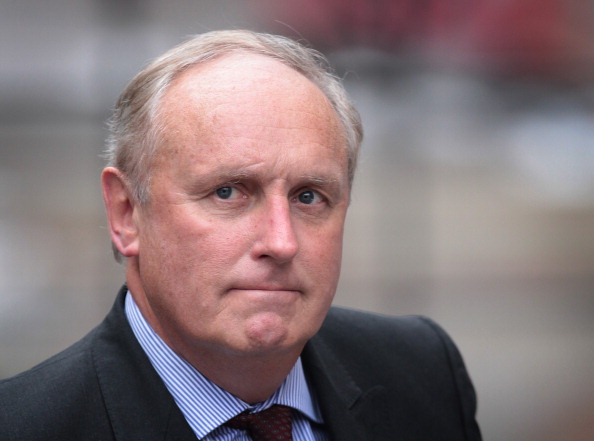Wanted: A new culture war chair of the watchdog Ofcom. Anyone? Anyone?

It’s been a busy time for news, as Russian forces mass on the border of neighbouring Ukraine and the British political establishment grapples with the mental image of being ambushed by a cake. So you may be forgiven for failing to notice that the government is once again advertising the position of chair of Ofcom, the broadcasting and telecommunications regulator.
The position of chair has been vacant since the end of 2020, when Lord Burns, former head of the Treasury, stepped aside; his deputy, Maggie Carver, has been acting as interim since then. The government’s preferred candidate—this was the most open of open secrets—was Paul Dacre, former editor of the Daily Mail, who was known for turning his editorial meetings into “the Vagina Monologues” because of his frequent use of the c-word.
Dacre was an unsurprising choice. Radicalised as a right-winger during a stint in the United States in the late 1970s, he is a man of impeccable Brexit credentials.
Though Dacre’s true calling is as a sensationalist: under his leadership, the Mail ran a front page with the alleged killers of Stephen Lawrence under the banner headline “MURDERERS”. His candidacy faltered earlier last year when the interview panel found him lacking in some of the key qualifications for chair of Ofcom, especially in terms of known and stridently expressed views.
Essentially they doubted that he would be an impartial judge of the industries he would be supervising. This was obvious to the blindest of men on the fastest-galloping of horses, and was central to the reason that the prime minister and others wanted Dacre for the job.
During the summer, the job specification was rewritten to favour more confrontational and robust candidates and a new interview panel was, eventually, selected (though it was reported that several people approached were reluctant to be involved in the process). Then in November, just as the government seemed to have recast the Ofcom role as the job of being Paul Dacre, the man himself declared that he was not interested and there were too many vested interests opposing his candidacy.
Now the post is on the open market again, with applications closing early next month. In truth, arguments about whether Dacre was a suitable candidate are missing the point. From the time his name was first linked with Ofcom, it has been clear that the government was not seeking a candidate to fit the role; rather, they wanted to reshape the role to fit their candidate. And this is important to remember.
The chair of Ofcom is a part-time role, and is not the executive leader of the organisation. Day-to-day command rests with the chief executive, currently Dame Melanie Dawes, a former permanent secretary in Whitehall. The successful candidate will lead the board and make sure that Ofcom adheres to its statutory duties, as well as being the public face of the regulator. The government’s actions over the past year have demonstrated another, tacit role: that of setting the mood music for the government’s ideology and priorities in broadcasting.
However lazy and loathsome a phrase it is, Ofcom was thrown into a position to move into the front line of the “culture wars”. We are in a time in which the sale of Channel 4 is being contemplated, the very nature of the BBC funding and the broadcaster’s role is up for debate, there are increasing question marks over what constitutes “news” and what is blatant disinformation, and we should not imagine that the government is a neutral arbiter in these matters. It has views, often pungent, and it will use every scrap of influence it has to advance them.
The next chair of Ofcom matters, because this could be a tipping point. If it goes to a media insider in the grey centre of politics, someone comfortable on the sofas of Broadcasting House or the dining rooms of the Groucho Club, it will signal a retreat, however small, by the government from its confrontational agenda.
If, however, the prime minister and his roustabout culture secretary, Nadine Dorries, find a new candidate who challenges the consensus, who does not venerate the household gods of British broadcasting, who is willing to ask uncomfortable questions about every underlying assumption, then the media may be in for a very bumpy ride indeed.
Fun fact: the civil servant leading the recruitment process for Ofcom’s new chair is Sue Gray.